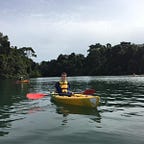Resisting the Surveillance State
Having been recently active in an abolitionist reading group, it is quite striking how necessary resisting carceral (ie prisons, the police etc) systems is. One of the prime ways that the carceral state manifests is through surveillance. One only has to look at how facial recognition systems have been implemented at a recent London protest against a conversion therapy conference held at the Royal College of General Practitioners. Or how facial recognition systems have been deployed as racialized tools of control in Lewisham in south London very recently. In the US, the recent imposition of national guards into the New York City subway system is a clear example of the ever increasing reach of the carceral state through surveillance and intimidation.
While I mentioned above about the anti-facist protest for trans rights, it is very clear that police are recording protesters at various kinds of protests, particularly recent demonstrations for a free Palestine. It should really go without saying that protesters should never engage with the police unless they have to and should especially not talk to the police as this will be used against them. This is where the importance of masking at protests and more generally in day-to-day life comes in. Masking is resisting the carceral state through hiding from facial recognition and making it harder to surveil protesters. Masking is also an act of community care during the ongoing pandemic in terms of protecting yourself and others. If abolition of carceral systems is about creating a community network and transformational justice system outside the networks of prisons and policing, then masking becomes essential not only as a means of creating caring communities but also about resisting the eugenics of the ongoing mass disabling and death-causing covid pandemic.
As I wrote about in my post last month, resisting the ongoing pandemic and the increasing surveillance of carceral systems is intimately connected as well to ongoing genocidal colonial violence in Palestine. I really cannot overstate how interconnected police violence and surveillance is with genocidal colonial violence throughout the world. One only has to look at how US police and FBI agents have gone to Israeli-organised workshops to learn about ‘best practices’ to violently suppress protesters. Rishi Sunak’s recent statements about trying to ban face coverings at protests is also about increasing police surveillance and repression by making it easier to identify protesters and track them in databases. Banning face coverings also legitimizes the ongoing violence of the pandemic and would make protests even more inaccessible for disabled and immune-compromised people. The violence of unmitigated spread of covid is also replicated in Palestine as I mentioned in my post last month as well where infectious disease including covid is used by the Israeli state to further their genocide. As the Zionist state completely destroys healthcare in Gaza, they are able to more effectively spread infectious disease as people are unable to access any healthcare.
Resisting surveillance through masking is also very relevant in terms of adapting to the climate crisis. In 2023, in New York City, the city recorded the worst air quality in the world from smoke caused by Canadian wildfires. Of course, the climate crisis will be and is worse in the Global South even though the blame for the climate crisis rests squarely on emissions from the Global North. As fascist and repressive regimes become more prominent globally, it is likely that they will double-down on anti-masking. Indeed, one of the primary reasons likely for the global minimizing of the ongoing pandemic is because masking was making it harder to surveil people such as during the Black Lives Matter uprisings in 2020. In this way, masking for climate changes as air quality increasingly worsens is tied into resisting repressive carceral systems.
I just want to conclude by saying that masking is not the only part of resisting carceral systems and fighting for a more just world. However, it is extremely important to mask in public to resist carceral surveillance and to mitigate the ongoing covid pandemic. Mask in solidarity with Palestinians, Sudanese people and Congolese people facing healthcare collapse and the rampant spread of infectious disease. Mask in solidarity with people throughout the Global South facing climate collapse and increasingly worse air quality. Mask in solidarity with racialised people who are brutalised by police throughout the world. Resisting carceral surveillance through an abolitionist lens and by extension building up a community that mitigates the ongoing pandemic is crucial to building alternative caring communities.
